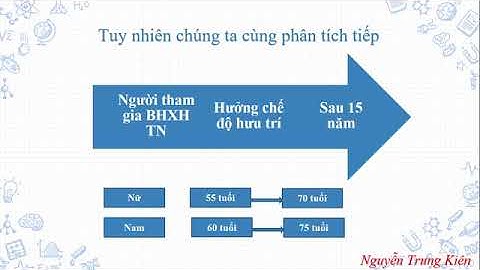Sorry, we just need to make sure you're not a robot. For best results, please make sure your browser is accepting cookies. Show Type the characters you see in this image: Try different image Conditions of Use Privacy Policy © 1996-2014, Amazon.com, Inc. or its affiliates When I first heard of this book it was in a ‘new books’ supplement for the AIM – (Australian Institute of Management) journal. The brief review said that this book would help managers be more effective in their work. I automatically thought, “what superficial scientifically correct and boring backward information will this book contain?” The reviewer in the brief article knew that they were talking to management and so kept the review ‘safe’ and scientific, based on hard facts and talk of efficiencies. I then had a friend offer to lend this book to me. I borrowed it and didn’t look at it for a number of weeks (thinking it would be boring). But, any book with the word EMOTION in it, always attracts my attention, so I hung onto it. When I finally picked the book up again, I was pleasantly surprised, and within a few pages I was practically in tears. The book wasn’t management oriented material at all. That applied only to a small section of the book. The book actually delivered what I have wanted a book on Emotional Health to deliver for years. A layman’s guide with real scientific PROOF (which is what we have been brought up to believe we should have for everything) on the importance of emotional health. I had been gathering research articles, newspaper clippings, magazine articles, video documentaries etc, over the years, accumulating evidence justifying the importance and significance of emotions in our lives. Now all of a sudden here was a book where someone had put all this proof together into the one place. No longer did I need to prove the value of my work, there was finally a readable ordinary book that I could hand to the sceptics when inquired upon. This book was waiting to be written. As Goleman states in his introduction “I have had to wait till now before the scientific harvest was full enough to write this book”. The importance of emotions are now becoming more and more socially acceptable as the world ‘evolves’ and learns more and more that each person has their health and wealth in their own hands, to create with their energy, in their body. And that’s exciting. As we become more ‘embodied’, books such as Goleman’s will not require so much scientific hard proof. The proof will be in our bodies and the ‘feel’ of them that we get at any moment will be the feedback that is ‘real’ rather than some external objective source telling us how we should feel and what is right. Goleman’s book is so packed with scientific research that it is actually hard to read in a flowing way (and I found boring in places). Each section ‘stands alone’ on its own merits, so the book is readable from anywhere. Goleman places a heavy reliance on the intelligence in the BRAIN with little reference to the intelligence in the BODY (my background). However we meet in the middle with the focus on emotions. Along with the emphasis on the brain is the emphasis on chemical cures and causes of problems. There is a lot of traditional-type views of the ‘chemicals’ in the body/brain as the cause of particular problems. Again this is in the old medical model point of view. There is no mention whatsoever of the role emotions as energy have on the body. Thus this book stays clear of having a new-agey feel. It stays with the hard research and numbers for proving the value of emotional intelligence. Each major chapter begins with a hard hitting real life drama that highlights to an extreme degree what a lack of emotional intelligence (or an emotional block in body psychotherapy language) can cause. The stories are horrific and jolting. Goleman brings to light more research to show the trend of escalating emotional problems occurring in our society especially with our children. He offers solutions for schools to teach emotional aptitudes to children from an early age. This is the straight practical acceptable answer for the majority of people. He doesn’t go into why all this is happening on a global scale. The essence of what emotional problems represent are not touched on mainly because he relies solely on the scientific facts to hold there own without too much interpretation from himself. I would like to have seen more added discussion along the lines of how emotional problems represent a society that has not listened to the small taps on the shoulder. The body saying hey! there is a problem here listen to me! As we cut this off and run our lives too much from reason and intellect (the over reliance on mental IQ) the taps get bigger, and bigger until we listen to them. Today in society we have over cut-off from listening to our bodies and thus emotions, so much so, that the taps are HUGE. So we have big divorces, major health crises, major crime and riots, and massive pollution breaking down our atmosphere. All signs that we neglected smaller warning signs somewhere along the track. Now the emotional, social and environmental problems have escalated and will continue to do so naturally until the pain gets through and touches us deep enough to have us face our emotional/spiritual areas that we’ve blocked off from awareness and feeling, straying our direction. The book didn’t really contain the essence of the major shifts in human consciousness that we are currently undergoing. So it came across as a bit ‘dry’. Sticking to left brain scientific studies (mechanistic parts model) is lop sided and not progressive in today’s age. The book I believe misses a holistic flavour and the right brain experience that makes a book rich, energetic, passionate and alive. Goleman did not in my mind infuse his emotions into the book enough. He only does this in little flashes in predictable places at the end of each major chapter. As we say, the ‘let it happen’ mind was not flowing. Instead he was ‘making it happen’ using conscious left brain research studies for all the building blocks. But that’s understandable. A review of the parts. Part One – The Emotional Brain. Goleman discusses what emotions are for. He points out our two minds, the rational and the emotional. It fits in with my work re the body/mind split. He introduces the ‘amygdala’, which sounds funny as it is the exact pronunciation in Greek for the word ‘almonds’, which I use in my everyday language when speaking Greek. He talks about how these two almond shaped structures act as a storehouse of emotional memory and without them one loses all recognition of feeling as well as any feelings about feelings. Without them one becomes uninterested in human contact. In severing the amygdala from the neocortex, people become computer like, able to step through a decision but unable to assign any values to the possibilities. Every option becomes neutral. Apparently, you have no preference at all. Your ‘gut feel’ disappears, there is no emotional experience to draw on. So you lose the ability to make sound personal decisions, as they require access to our feelings. His description of how the amygdala function was clear (as clear as can be without diagrams). Input from our senses first passes through the Thalamus which then translates the information into the language of the brain and passes it to the appropriate area in the neocortex for processing. What has been discovered (Goleman says) is that there is also a ‘back alley’ quick connection, from the Thalamus to the amygdala (which in turn activates the rest of the body). This means that we can have an emotional memory and a rational intelligence independent of the rational neocortex processing. This is highly conclusive evidence for having emotional impressions and memories that we have never known about or had access to, to our full conscious awareness. It suggests that the amygdala are the physical existence of the subconscious feeling memory. By turning the conscious neocortex off and talking directly to the feeling memory we could be in fact be going down that back alley to the amygdala and allowing them to sort out old outdated responses and feelings without the over control and interruption of the neocortex, which probably doesn’t know half of what’s stored in the amygdala (to provide any worthwhile input). It doesn’t know because the amygdala are almost fully formed in a child’s brain at birth while the neocortex is far from full development. So early childhood provides for a big emotional impression on the amygdala without the reasoning and words of the neocortex. Part two: The Nature of Emotional Intelligence Discusses why EQ has more correlation to success in life than IQ. And how emotions were left out in psychology because science couldn’t objectify and study emotions with scientific accuracy. However our humanity is most evident in our feelings than our cognition and with emotions now coming to the forefront I believe we are getting a truer in depth understanding (more holistic) of what it is to be human. Goleman uses Salovey and Sternberg’s wider view of intelligence to structure this book. The following are real emotional intelligence skills required to fully succeed in work in addition to traditional IQ. The two psychologists see emotional intelligence comprises of five areas: 1. Knowing one’s emotions – you can make better informed decisions about your life. 2. Managing emotions – shaking off anxiety, bouncing back, having a positive outlook to make constructive use of circumstances. 3. Motivating Oneself – delaying gratification, persistence, desire intensity for a goal. Hope. Doing work you like/love gives more ‘flow’ to your work and life producing better and more fulfilling results. 4. Recognising emotions in others – Empathy. Being able to spot social cues about what others need and want. A skill that is possessed by successful Teachers, people in Sales, Management, and the Caring professions. Picking up the meaning in the emotional message in other people’s tone of voice for example, is a crucial skill in my role as a therapist. 5. Handling Relationships – The ‘Social stars’ have Charisma and Leadership qualities. For success with relationships, you need self-management to know where you are at and, empathy to know where the other person is at. This provides good people skills. Part three: Emotional Intelligence Applied Marriage/Relationships – Stonewalling, Attacking the character and not the behaviour, Flooding. These are some of the major emotional problems that can ruin marriages. The repair mechanisms in good marriages have roots in emotional intelligences – The ability to calm down, keeping the discussion on track, empathy and listening well. Goleman says that if you concentrate on these above emotional competencies you get a smoother relationship, as opposed to concentrating on specific issues such as child rearing, sex, money, housework etc. In Business – Overbearing bosses has a dramatic affect on teamwork and personal performance. ‘Stress makes people stupid’. I can actually testify to this from personal experience. I once worked for a manager doing work that was to me easy as pie, but because of his emotional outbursts and moods made my job harder to perform. I would feel weighed down working there. It actually felt like there was a ton on my shoulders and as a consequence, work that was on the surface easy to do and I normally enjoyed became so hard and slow. I couldn’t believe the effect one man in charge could have on my performance as well as on the whole team. Even though there was only five in the team, we might as well have been working in different buildings, the team work was not of a small tight knit group you’d expect of a small area and business unit. Star employees have a thick connection of informal networks, for communications, expertise and personal trust. This is emotional skill at its best in organisations. No amount of traditional IQ can build successful networks. It takes emotional personal and people skills. Health – Effect of anger on heart efficiency. It has been discovered that Hostility puts people at risk of a heart attack, not the A-type hurried high pressure personality. The findings here parallel the holistic health movement. Part four – Windows of Opportunity Parenting – Goleman looks at our ability in handling a child’s emotional responses and how this plays a major role in the emotional intelligence level a child will possess. He also details a report on infant learning and it points out that a child’s learning at school depended on seven key ingredients around HOW to learn, all which are emotional intelligences: Confidence, Curiosity, Intentionally, Self Control, Relatedness, Capacity to Communicate, Cooperativeness. Part Five Emotional Literacy Goleman cites how popular kids at school are able in role-play to express a variety of emotions whereas the less popular kids are more restricted in their emotions. Again, I can vouch for this finding from personal experience in my case with the before-and-after of emotional healing work (over 7 years). My abilities to empathise and interact in a meaningful way with a variety of people has widened considerably. The main point in this section is where Goleman proposes that more schools need to be teaching emotional skills. He presents a number of schools that are already teaching in this way. It’s definitely a positive step in the right direction. I like how he highlights that children with an impaired emotional life, are at a greater risk of academic failure, alcoholism and criminality and not because they lack intellect. Our emotional life is never taught, acknowledged nor given space as a subject at school. In Summary We as a species just haven’t socially realised the value of emotional intelligence enough to sculpt our schools and work environments to cater for this crucial human function. NOW with a book such as this (and with the ones that are following in numbers now) we are waking up. Generally women have always known this, but men in the seats of power have suppressed it very well in history. Now we are getting the balance back slowly. Goleman argues through the research presented, that emotional intelligence accounts for abilities such as self-control (control of one’s impulses), empathy, social competence in interpersonal relationships, persistence and the ability to motivate ones self. He shows how these skills determine our success in relationships and work and how Emotional IQ has a greater correlation to success in work and relationships than mental IQ does. As well as having a big impact on our physical well-being. The above seems obvious that simply being bright with a high IQ is not enough to succeed and that you need the drive and management of yourself to get there. What Goleman highlights though is that these ‘other’ skills required can be labelled as Emotional IQ. And I think this deserves the same if not more of the limelight that Mental IQ has enjoyed over the last 100 years. Emotional Intelligence is really talking to the masculine left brain men in power, who created the systems we run today. The book is saying hey! here is the proof in your language, telling you how you guys have neglected the allowance of emotional healing in our social structures. Which is why we are in the mess we are in today. Is emotional intelligence by Daniel Goleman worth reading?Emotional Intelligence by Daniel Goleman helps most if you are looking for a way to understand how emotions work and what is 'EI'. It unravels the capability of individuals to recognize their own emotions and completely changes one's thinking, behavior towards everything. What is the main idea of emotional intelligence by Daniel Goleman?Daniel Goleman in his book Emotional Intelligence. Dr. Goleman described emotional intelligence as a person's ability to manage their feelings so that those feelings are expressed appropriately and effectively. According to Goleman, emotional intelligence is the largest single predictor of success in the workplace. What is the best book on emotional intelligence?13 of the Best Emotional Intelligence Books for Leaders, Managers, and Employees. Social Intelligence by Daniel Goleman. ... . The EQ Edge: Emotional Intelligence and Your Success by Steven J. ... . Go Suck a Lemon: Strategies for Improving Your Emotional Intelligence by Michael Cornwall. ... . The Power of Vulnerability by Brené Brown.. What is Daniel Goleman's thesis in his book emotional intelligence?In the book Emotional Intelligence by Daniel Goleman, the central thesis that he tries to point out is that emotional intelligence may be more important than I.Q. in determining a person's well being and success in life. |




















